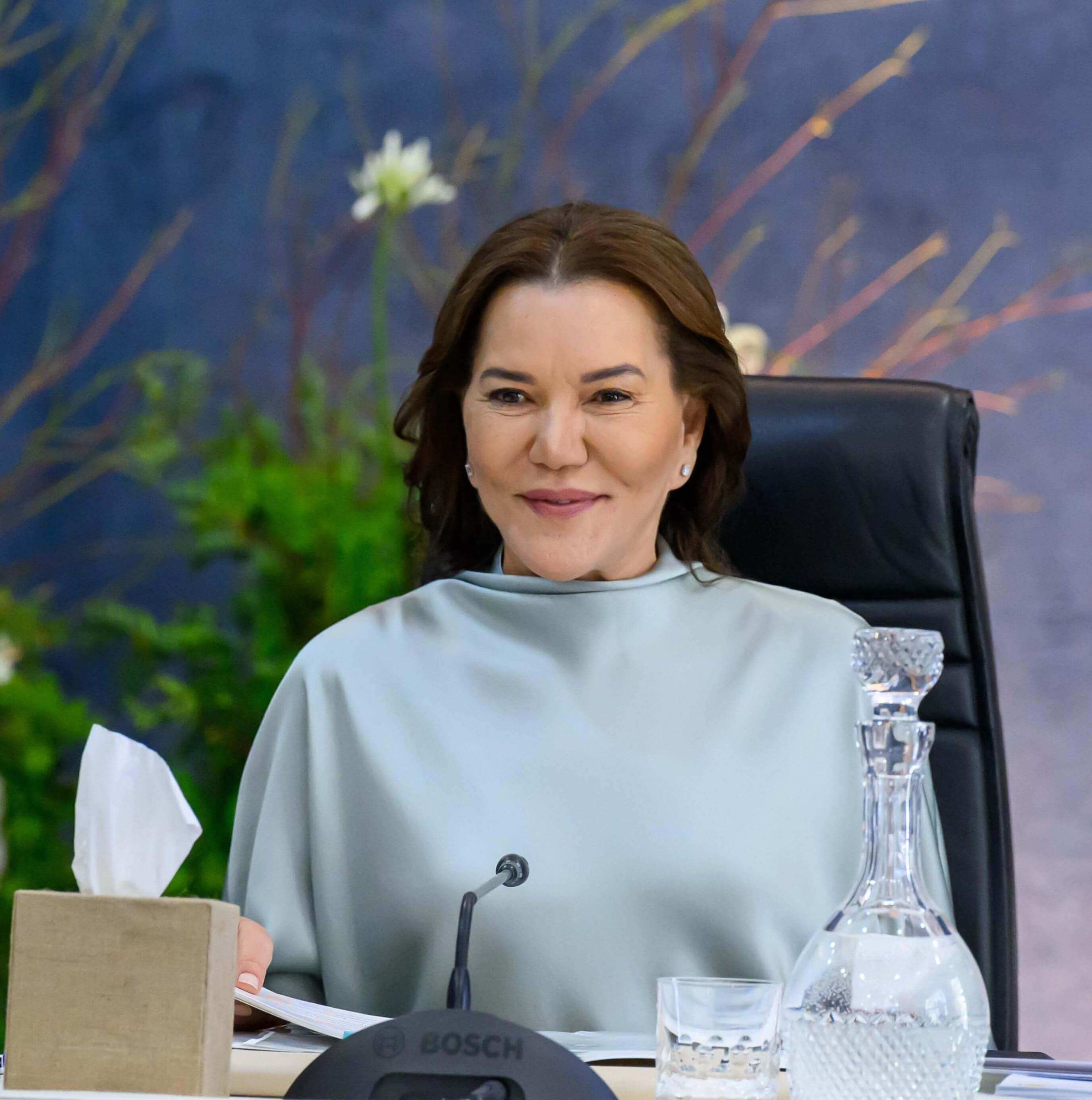
14 June 2013
Her Royal Highness Princess Lalla Hasnaa presides the Board of Directors of the Mohammed VI Foundation for the Protection of the Environment Friday 14 June 2013
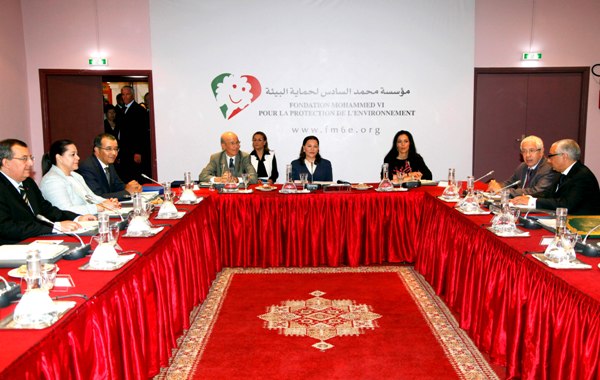
Her Royal Highness Princess Lalla Hasnaa presided Friday, June 14, 2013 in Marrakech, the Board of Directors of the Mohammed VI Foundation for the Protection of the Environment in the presence of Board members, including Mr. Fouad Douiri, Minister of Energy, Mines, Water and Environment and Ms. Meriem Bensalah Chaqroun, President of the CGEM.
Her Royal Highness who welcomed the work and tangible results achieved since the inception of the Foundation in 2001, recalled the various programs that the Foundation leads, and reviewed the 2012 balance sheet and achievements.
Clean Beaches program.
In agreement with the General Directorate of Local Authorities (DGCL) and departments concerned, a new vision of “Clean Beaches” program is underway and would engage more municipalities in the management of their seaside heritage in order to ensure better protection and
to grow for the benefit of local populations. The work conducted has identified the levers for development to promote a better preservation and enhancement of beaches.
In 2012, this program has involved 71 beaches, including 20 Blue Flag labeled beaches, covering 45 communes and supported by 25 public and private entities.
Marchica Lagoon
Concerning this lagoon, one of the most important in the Mediterranean, the Foundation, by its mission, conducts awareness-raising and education for sustainable development operations as a societal objective that will be subject of the wide dissemination of the whole Mediterranean and Atlantic coast of the Kingdom.
Since its launch, four Conventions were signed with various partners, allowing each to measure the value and impact of awareness raising and environmental education and the necessity of having tools for common representation and shared indicators by all of the actors.
Intercontinental Biosphere Reserve of the Mediterranean.
As to this project, the Foundation aims to encourage the large infrastructure project developers in the region to integrate sustainable development, by engaging a comprehensive education and awareness-raising program. To this end and in the framework of agreements signed with our partners, several education and awareness raising actions have been conducted or are being implemented. This is so the realization of an interactive CD on the RBIM, the launch of the pilot project on the promotion of responsible tourism in the National Park and sites Talassemtane, the most frequented on the RBIM, and the SIG which is being developed.
Oued Eddahab Baye
The success of two previous projects has led various partners to solicit the Foundation to engage a support sustainable development of Oued Eddahab Baye and create the conditions for dialogue and cooperation for the preservation of this area of high biological and ecological value. The year 2012 saw the creation of a committee to monitor, the drafting of an action plan and the establishment of the observatory of the lagoon. The main educational programs of the Foundation have been deployed there.
Air Quality Program
The Foundation has completed the acquisition for air quality measuring network stations, which the Department of Environment and the Directorate of National Meteorology strengthened. At the end of 2012, the national network consisted of 30 monitoring stations and two mobile laboratories.
Meanwhile, the Eco-epidemiological study conducted in partnership with the Ministry of Health, the Department of Environment and the support of the Wilaya of Greater Casablanca was launched on the Mohammedia-Casablanca axis to measure the effect of air pollution on the health of citizens.
The pilot phase of this important study which permitted the establishment of a first quarterly balance sheet has been established in mid-February 2012. Thereafter, it was extended to the entire greater Casablanca area. It involved public hospitals, CNSS polyclinics, diagnosis centers for tuberculosis and respiratory diseases, basic health centers, communal hygiene offices, etc. The health indicators and air quality data covering the period from November 1, 2011 to October 31, 2012 have been collected and are being processed.
Volountary Carbon Offset
The Voluntary Carbon Offset program, launched for the first time in Morocco, April 23, 2009 by Her Royal Highness Princess Lalla Hasnaa, continues its development on a sustained basis.
The conventions with different partners enabled the enabled the planting of 3,500 palm trees on the walking tour of the Marrakech palm grove, the supply and installation of solar photovoltaic kits to 86 schools and to 22 rural accommodations for teachers in remote provinces, the distribution of 500 bicycles for schoolchildren in the Marrakech palm grove (encouraging the use of non-polluting ways of transport and improving the school life ) , the redesign of the portal, and implementation of an interactive CD for Eco-Schools.
For its part, the study for the Adaptation of the carbon balance method and its validation in Morocco on 3 sites (industrial, tourism and administrative) falls as part of a cooperation agreement between the Agency for Energy and Environment Control (ADEME) and the Foundation, which will be for the foundation one of the important tools for awareness-raising public and private sectors on the greenhouse effect and climate change.
Eco- Business Program
For the Eco-Business program, thematic workshops were organized on support programs for the sustainable development of the Marchica lagoon, the Intercontinental Biosphere Reserve and tourist institutions involved in the Green Key program.
Most notably is the pilot plot for the agricultural use of sludge from the treatment station for the greater Nador region in October 2012, with the support of the ONEE, the Grand Nador’s Chamber of Agriculture and international experts accustomed to these techniques. This is sustainable solution by means of composting green waste and sludge and could develop in parallel with the treatment plants sewage of large agglomerations of the Kingdom.
« Environmental Education » :
a- « Eco-Schools » Program
This program allows establishing the basis for a learning process on the preservation of the environment. Its generalization continues progressively. Actually, 675 schools in 16 regions and 81 delegations are registered in the program during the period from 2010 to 2013, including 271 rural schools (40%), and 404 urban schools (60%).
55 schools out of 105 candidate schools were awarded the Green Flag label, including 63 during the 2011-2012 school year. Also during the 2011-2012 school year, 28 schools implemented environmental projects within their establishments per the Eco-Schools approach, enabling them to obtain the Green Flag.
b- « Young Reporters for Environment »
The celebration of the 10th anniversary of “Young Reporters for the Environment” was an opportunity to see the level reached by the program, which incites and encourages high school students from 12 to 18 years to investigate, under the supervision of their teachers, a topic related to their immediate environment. (Waste, water, energy, agriculture, cities, coastal biodiversity … etc..). With the participation of nearly 2,000 students from the 16 school academies in the Kingdom in 2012, the 10th Young Reporters for the Environment contest reflects students’ enthusiasm for this program. They submitted 64 written reports and 359 photos, which were carefully considered by the jury. Six written reports and five photos were awarded.
c- Capacity building for young communication professionals in North Africa
The objective of the flagship project “Capacity building for young communications professionals in North Africa,” led by the Foundation in partnership with IUCN-Med (International Union for Conservation of Nature), is improving capacities of young environmental journalists. A first pilot project concerned 15 journalists environment from Morocco, Algeria and Tunisia, increasing their knowledge of climate change, renewable energy and the importance of forest ecosystems, as well as the most relevant approaches in terms of research, investigation and communication. Training sessions were provided in 2012 via an e-learning platform specially designed for this purpose (www.rcmdd.ma).
Responsible tourism
Green Key Program
Intended primarily for tourism professionals but also the general public, this program is a great opportunity for a green tourism industry. 70 institutions have been awarded the Green Key label in 2012: 29 hotels, 25 guesthouses and 16 guesthouse accommodations of all types. This year was marked by the accession of institutions of high standing and international reputation to the Green Key process.
The national jury has adapted for the period 2013-2015 the Green Key criteria grid to the Moroccan context, and then presented it to a representative group of certified establishments for advice and supplemental information.
Marrakech Palm Grove Safeguarde
The program is entering its second phase. Thus, the year 2012 was marked by the start of setting up a garden of palms favoring the solar pump for reducing fuel consumption and even improve the air quality Planting programs of 2012 have benefited from this watering new approach of 12500 palm constituting a pilot case before generalization. Also, palm grove will benefit from the spray from the wastewater treatment plants.
The preservation of the palm is also dependent on the site of its Biological and Ecological Interest (SIBE) which includes all its fauna and flora.
The prerequisites for its classification (analysis of existing regulatory texts, administrative approach to classification and development of terms of reference) were initiated this year by a local ad-hoc committee created for this purpose.
This second phase knows the strengthening of education and awareness programs, including the design of an educational path of the palm as a tool for education and awareness around this site and the oasis culture, which will be implemented in 2013.
Note that the educational circuit already set up in exotic gardens allows visitors to learn and to be sensitized in a unique and in a playful way, on the issues and the role of biodiversity in human development and the interest of preserving our natural heritage.
At the international level,
The Foundation, which is a member of FEE since 2001, has been elected to the Executive Committee of the International Foundation, during the General Assembly held in Dublin, Ireland on June 9, 2012. The Executive Committee, for two years The Executive Committee, appointed by the General Assembly, is the decision-making unit and approves all decisions on development and good governance. The Foundation will help develop the strategic direction of FEE programs.
The Foundation has just also postulated as a future member of the Economic and Social Council (ECOSOC), in order to be part of the network of UN NGO whose objective is to improve the standard of living, to endeavor for full employment and promote economic and social progress.. The Foundation, which presented its formal request for granting consultative status with ECOSOC and was included in the 2014 calendar of the organization.
The Foundation has also joined the Mediterranean Information Office for Environment, Culture and Sustainable Development (MIO ECSDE), which is internationally recognized as one of the largest networks in the Mediterranean environment, culture and NGO development. It is also a key player in international issues crucial to the future of the region and beyond. A Memorandum of Understanding between the two institutions is being finalized, aimed at implement projects and programs on education and environmental awareness-raising.
Future partnership with the UNEP: The 10th anniversary ceremony of the Young Reporters for the Environment program was an opportunity for Mr. Achim Steiner, Executive Director of the United Nations Environment Program (UNEP), to seek cooperation with the Foundation to pool their knowledge in environment and sustainable development, the promotion of environmental education and awareness-raising and the capacity building and training in the field of environment and sustainable development.


21 may 2024 : Her Royal Highness Princess Lalla Hasnaa Inaugurates the Historic Lahboul Park in Meknès

Dubai – 08 December 2023 : HRH Princess Lalla Hasnaa Takes Part in Dubai in First Annual High-level Meeting of ‘Greening Education Partnership’
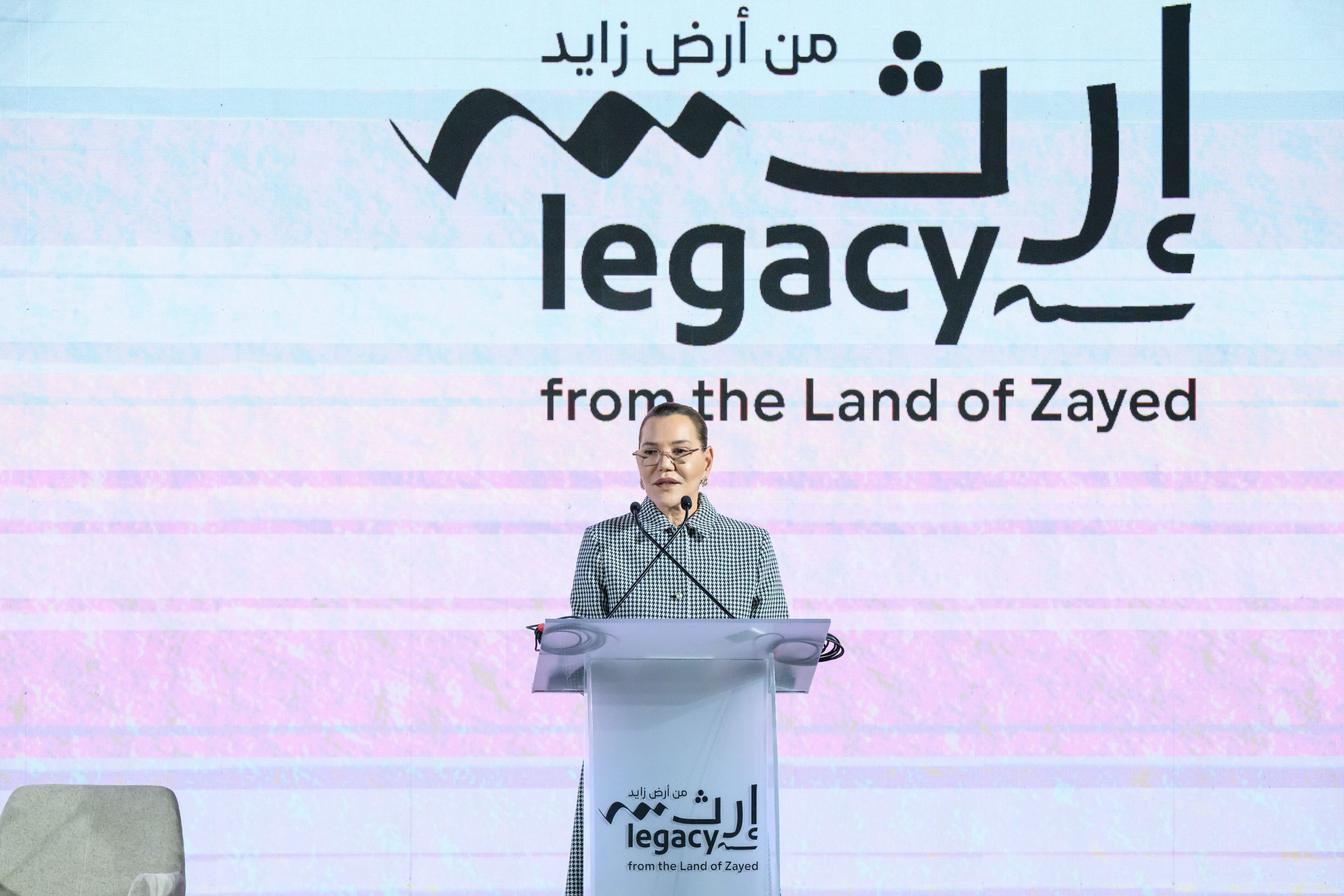
Dubai – 08 December 2023 : HRH Princess Lalla Hasnaa Stresses Importance of Investing in Education to Shape Youth into Active Citizens in Planet Protection
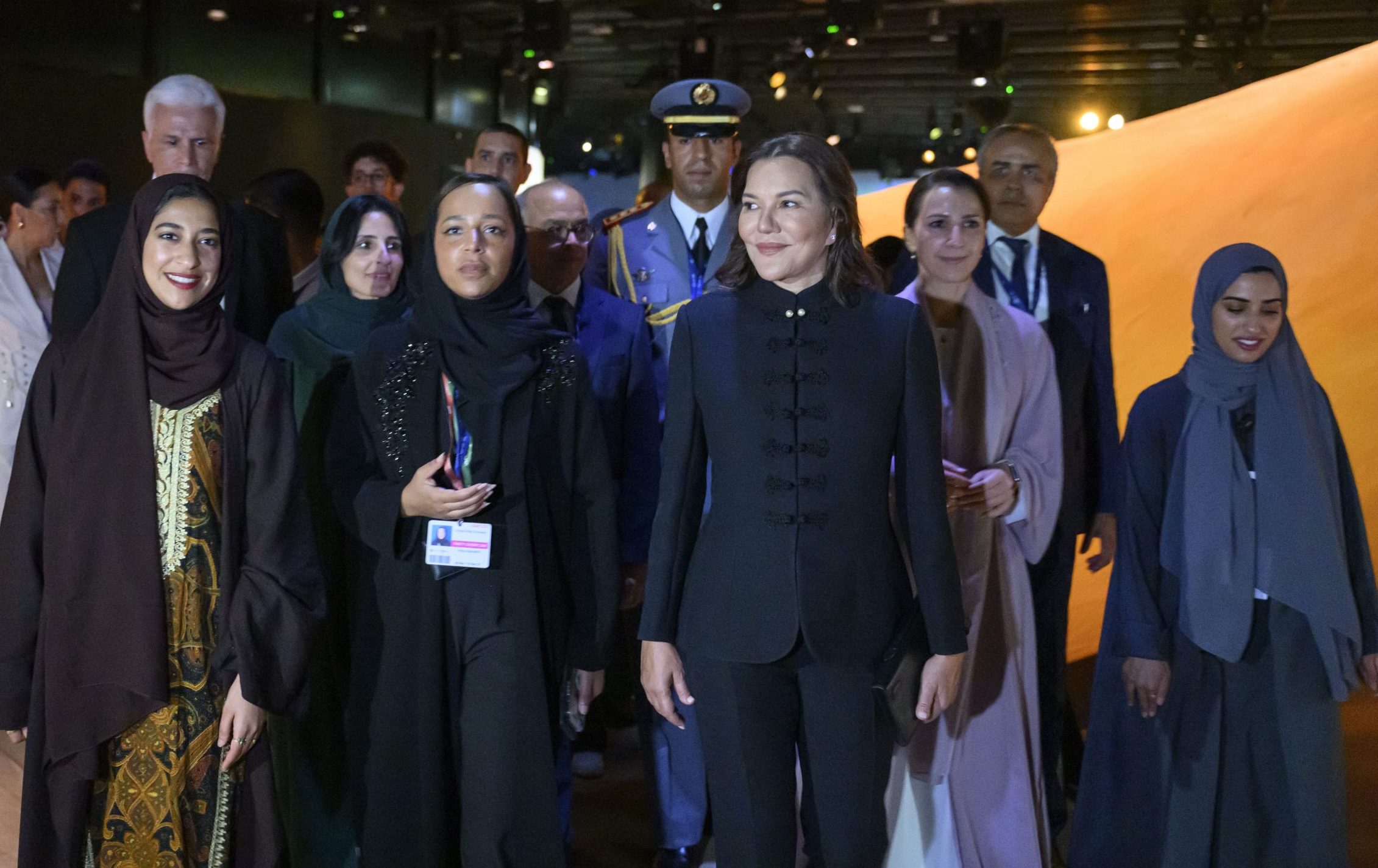
COP28: HRH Princess Lalla Hasnaa Visits UAE House of Sustainability Pavilion, Morocco Pavilion
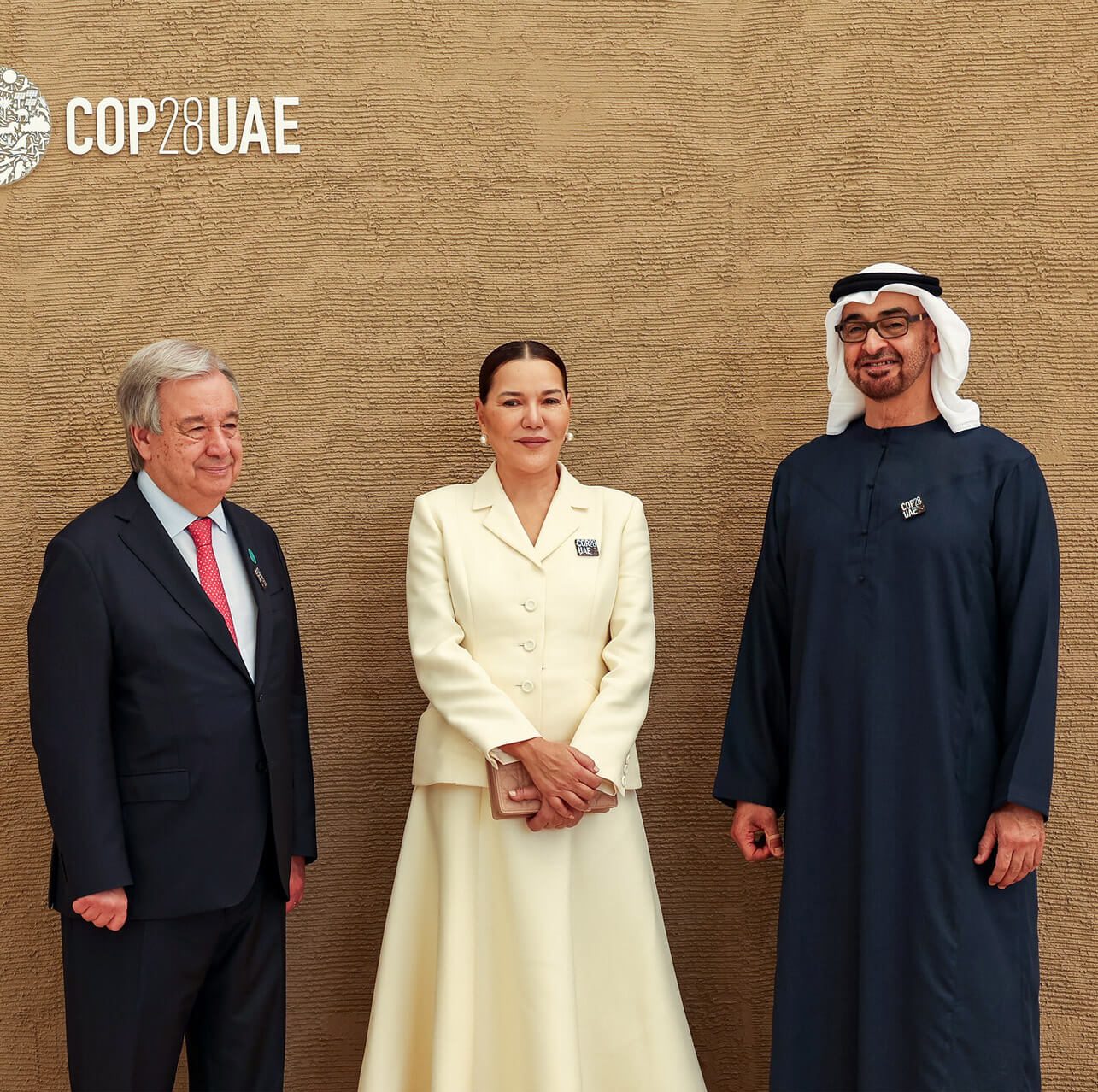
Dubai – December 01, 2023 : COP28: HRH Princess Lalla Hasnaa Represents HM the King at World Climate Action Summit in Dubai
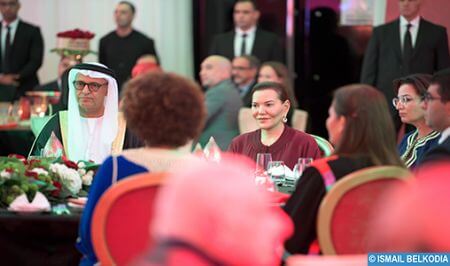
Rabat – 15 November 2023 : HRH Princess Lalla Hasnaa Chairs Annual Diplomatic Charity Gala Dinner in Rabat
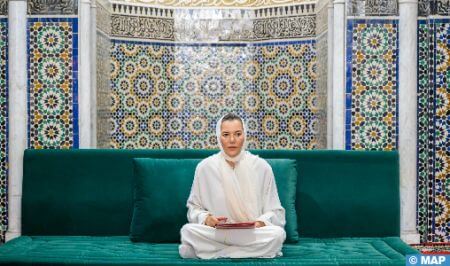
Rabat – 25 October 2023 : HRH Princess Lalla Hasnaa Chairs Religious Evening in Memory of Late King Hassan II
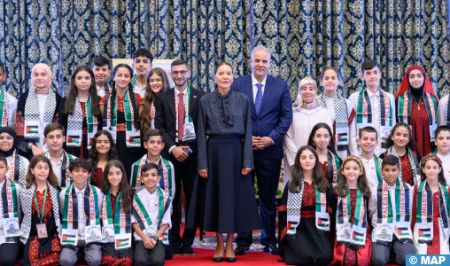
Rabat – August 26th, 2023 : HRH Princess Lalla Hasnaa Receives Al-Quds Children Taking Part in 14th Summer Camps of Bayt Mal Al-Quds Agency




